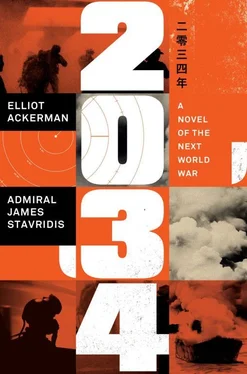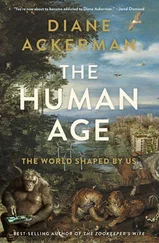The reason, nominally, for Wedge’s lengthening stay was a series of debriefings. Within the first week of coming home, he had breezed through meetings with officers from CIA, DIA, NSA, State, and even the National Geospatial-Intelligence Agency. He had explained to them in detail the malfunctions he’d had with the F-35, the series of troubleshooting procedures he’d employed (to include putting a bullet into the avionics—“When all systems became unresponsive, I disabled them manually”—which was met with skeptical looks by the career bureaucrats and defense contractors), and he had gone on to explain his captivity. Or at least what he could remember of it.
“Tell us a bit more about this Iranian officer.”
“Guy had three fingers on his right hand, a short temper, and kicked the shit out of me. What more do you want to know?”
The bureaucrats scribbled studiously in their notepads.
Wedge was bored. That was the real problem. He spent most of his day sitting around, watching the news. “Thirty-seven ships,” he’d often say aloud, as if from nowhere. Each time he said it he hoped that someone—maybe the buttoned-down master sergeant—would refute him and tell him that none of it had happened; that the Ford and Miller with all their escorts were still afloat; that the whole thing was a dream, an illusion; that the only reality was American greatness. Wedge knew a number of the now-dead pilots from flight school in Pensacola a decade before. “We got our teeth kicked in,” Wedge would say of the battle, running his tongue over his own missing teeth. On his second week in Quantico, he had a four-hour dental appointment, and it was the dentist who revealed the real reason he was being held on base. After finishing her handiwork, a total of five replaced teeth, she held up the mirror so Wedge could take a look. “What do you think?” she asked. “You’ll be in good shape for when they take you over to the White House.”
Another week passed.
So that’s what he’d been waiting for, a debriefing at the White House.
The master sergeant explained to Wedge his brush with celebrity while behind bars, even showing him the #FreeWedge threads on social media. The president was, after all, a politician, so it seemed little wonder she wanted to have a photo op with Wedge. It was a box she needed to check. But their meeting kept getting delayed. All Wedge had to do was turn on the news to see why. The Chinese fleet had disappeared. Vanished. Vamoose. The SECDEF, the chairman of the joint chiefs, even the national security advisor—that chicken hawk Trent Wisecarver—all of them held press conferences in which they made thinly veiled threats in response to “Sino aggression.”
The Chinese were watching.
They didn’t respond.
After weeks of saber rattling, the administration seemed as if it had tired itself out. The first day without a press conference was when Wedge finally received his summons to the White House. On the car ride north from Quantico, he kept checking and rechecking his service alpha uniform the Marine Shop had rush-tailored for him. The president, he was told, was going to present him with the Prisoner of War Medal. She would ask him a few questions, they’d have their picture taken, and he’d be done. As Wedge fiddled with the ribbons on his chest, he kept running his tongue over his new teeth.
“You look good, sir,” the master sergeant said.
Wedge said thanks, and then stared out the window.
When they arrived at the West Wing visitor entrance, it seemed as though no one was expecting them. The Secret Service didn’t have Wedge in the system for a visit that day. Wedge suggested to the master sergeant that maybe they should get a bite nearby; they could grab sliders and a couple of beers at the Old Ebbitt Grill or the Hay-Adams bar and then come back later. The master sergeant wasn’t having it. He kept arguing with the Secret Service uniform division officer, who eventually called his supervisor. This went on for half an hour as phone calls were placed to the Pentagon and Headquarters Marine Corps.
Then Chowdhury walked past. He knew about Wedge’s visit and volunteered to escort him inside. The master sergeant would have to wait, as Chowdhury was only authorized to escort one person at a time. While he and Wedge navigated through the cramped West Wing offices, Chowdhury apologetically explained, “Since the blackout none of our systems have come back online properly.” He then found Wedge a seat where he could wait. “I know you’re on the schedule for today, but things are pretty fluid at the moment. Let me find out when we’re going to get you in.” And then Chowdhury disappeared into a hive of activity.
Wedge knew a crisis when he saw one. Staffers hurrying in one direction down the corridor, only to turn around suddenly and head in the opposite direction. Heated conversations taking place in whispers. Phones urgently answered. The men hadn’t shaved. The women hadn’t brushed their hair. People ate at their desks.
“So you’re him?” said a man who had crept up next to Wedge, a red binder tucked beneath his arm, his frameless glasses balanced on the tip of his nose, evaluating Wedge as though he were a painting of dubious provenance.
Instinctively, Wedge stood, making a sir sandwich of this introduction. “Yes, sir, Major Chris Mitchell, sir,” he said, as though he was once again an officer candidate on the parade field in Quantico. Trent Wisecarver introduced himself not by name, but by his position, as in “I’m the president’s national security advisor,” and then he weakly shook Wedge’s hand as though he couldn’t muster enough regard for a heartier grip. “Major Mitchell,” he continued, referring to the binder tucked beneath his arm, “you are on the schedule; however, this evening the president has an address to the nation that she’s preparing for. So today has gotten a little busy. I must apologize, but I’ve been instructed to present you with your award instead.” Wisecarver then unceremoniously handed over the red binder, as well as a blue box that contained the medal itself. He paused for a moment, searching, it seemed, for the appropriate words, and mustered a paltry “Congratulations” before excusing himself as he rushed off to his next briefing.
Wedge wandered out of the West Wing to the visitor area, where the master sergeant dutifully waited for him. Neither spoke as they stepped out onto Pennsylvania Avenue and into the public garage where they’d left their government car. The master sergeant didn’t ask for the details of Wedge’s presidential visit. He seemed to intuit the unceremonious nature with which Wedge had been handled, and as if trying to cheer up the major, he reminded him that the next day they could cut his orders. He was now free to rejoin a squadron. Wedge smiled at this, and as they drove down to Quantico the two of them filled the silence with music from an oldies station. Until that station and every other was interrupted by a public service announcement followed by the president’s remarks.
The master sergeant turned up the radio.
Wedge stared out the window, into the night.
“My fellow Americans, hours ago our navy and intelligence services reported the appearance of a large Chinese fleet off the coast of Taiwan, an ally of the United States. In the context of recent hostilities with Beijing, this represents a clear and present danger not only to the independence of that island nation but also to our own. Recent military setbacks have limited our options for dealing with this threat. But, rest assured, those options remain ample. To quote the words of our thirty-fifth president, John F. Kennedy, ‘Let every nation know, whether it wishes us well or ill, that we shall pay any price, bear any burden, meet any hardship, support any friend, oppose any foe, in order to assure the survival and the success of liberty.’ This statement proved true during the darkest hours of President Kennedy’s administration, to include the Cuban Missile Crisis. And it proves true today.
Читать дальше












